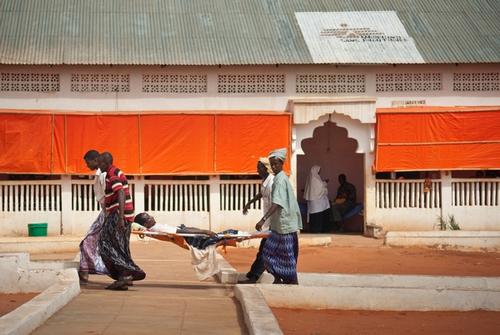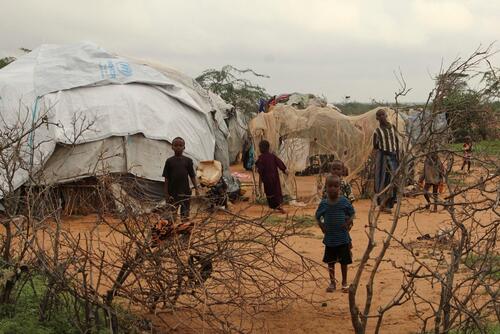Our announcement on 14 August that we were closing all our medical programmes in Somalia sent shockwaves through political and humanitarian communities. It came at a moment when world leaders, for the first time in decades, began making positive noises about a country on the road to recovery and with a stable government. For them the timing of our decision could not have been worse. In media interviews, we were asked to explain the discrepancy between the upbeat tone of governments and our own harsh judgement that led to one of the most painful decisions in MSF history.
Let me try to explain. To begin with, MSF is not an organization that comments on political or economic progress. We focus first and foremost on the health of people and their ability to find medical care when they need it. From that perspective, and based on our extensive activities across the country, there simply is no good news. Large parts of the Somali population live with undernourishment, disease and injury. They have little chance of finding quality health care when they need it. We struggled to provide medical services in almost all parts of the country, but not without compromise. We hired armed guards to protect our clinics and staff, something we do not do in any other conflict area.
Despite this extreme measure, we have been greeted with a barrage of attacks, including abductions and the killing of 16 of our staff. There has also been an unbearably high number of threats, thefts and other intimidating incidents. There is no other country in the world where security risks are so high. The many commentators on Twitter who have remarked that MSF is known to stay and work under the most difficult circumstances are correct. But MSF, too, has its limits. And we have reached our limit in Somalia with the sequence of murders and abductions over the past five years. In December 2011, two of our colleagues were brutally murdered in Mogadishu. Their killer, who had been tried, convicted and sentenced to 30 years in prison, was released after three months. Two other colleagues who were abducted from Dadaab two months earlier only found freedom a few weeks ago. They were captive for 21 long months in South Central Somalia. These two events were the final blows.
But security is not the reason we left, nor is the presence of criminal elements. What dashed our last bit of hope of working in the country was that the very parties with whom we had been negotiating minimum levels of security tolerated and accepted attacks against humanitarian workers. In some cases, they were actively supporting the criminal acts against our staff. In many other cases, these parties sustained an atmosphere that allowed attacks to take place. Nobody has stood up to say that it is unacceptable to threaten, abduct or kill doctors, nurses and other staff who simply try to bring health care to people who would otherwise have none.
Let's be clear. “Parties in Somalia” does not only refer to al-Shebaab, although they have much power and responsibility in many areas where we worked. We are also not pointing solely at the government in Mogadishu, which has shown indifference to the 2011 murder of our two colleagues, as the early release of the killer demonstrates. Rather, MSF's conclusion is that acceptance of violence against health workers has permeated Somali society and this acceptance is now shared by many armed groups and many levels of civilian government, from clan elders to district commissioners to the Federal Somali Government.
The eagerness to abuse and manipulate humanitarian aid was again demonstrated immediately after we announced our withdrawal from Somalia. Within one day, local al-Shebaab representatives took control of our hospital compounds in Dinsor and Marere, confiscating equipment and supplies, and sending patients home without us being able to complete their treatment. And within one day, a spokesperson for the Somali Presidency commented that “MSF’s decision is exactly what al-Shabaab and al-Qaeda wanted, so that they can terrorize people further. We ask MSF to review its decision and cooperate with the people,” thus trying once again to force a political and military agenda on us, a humanitarian organization.
Our decision to leave has been among the most painful in MSF’s history. Last year and in the first half of 2013, we treated around 50,000 people a month. That is almost 2,000 people every single day. Many will struggle to find the care that they need from now on. For an organization of doctors, that is a heavy responsibility.
In Kenya, that leaves the hundreds of thousands of Somali refugees with even less possibility of an early return. MSF continues its medical care for the refugees in Kenya and Ethiopia, but in a security environment (for our patients and staff) that is scarcely better than it was in Somalia itself.
As long as those who have any kind of power or influence in Somalia do not demonstrate that they value medical care for the people in their various territories, as long as they do not respect those who take huge personal risks to deliver such care, MSF cannot return to Somalia.
This article was first published in The Standard newspaper in Kenya on 20 August.




